Its been 34 years since I saw "Bound For Glory" but I recall liking it. Unfortunately, that enjoyment only thrust the paper I wrote as far as a C+.
Woody Guthrie, was more than just an American songwriter and folk singer. He was an inspiration to the oppressed and stood up against the establishment of his time. Through song, he brought change and helped deliver the dormant dignity of a downtrodden nation.
 Woodrow Wilson "Woody" Guthrie (July 14, 1912-September 3, 1967), died a young man. Even worse, he became stricken with a degenerative neurological disease long before he passed and wasn't productive for more than the last decade of his life.
Woodrow Wilson "Woody" Guthrie (July 14, 1912-September 3, 1967), died a young man. Even worse, he became stricken with a degenerative neurological disease long before he passed and wasn't productive for more than the last decade of his life."Bound For Glory" is the story of Guthrie's life in the"Dust-Bowl" and follows him to the land o' plenty, California. Beautifully photographed, it serves as a timepiece of the Depression.
He and thousands of fellow idealistic Okies find out that the descriptions of the "promised land" were highly exaggerated. The fruit growers throughout the area hire hundreds of pickers each day but there are three or four times more applicants than jobs. To make conditions worse, the orchard owners take advantage of this leverage and pay the select few, extremely low wages.
Guthrie is appalled by the living conditions in the shantytown village next to the orchard. He borrows a guitar and sets out to make his own way. When he retrurns, a radio personality, Ozark Bule comes by the camp to entertain the masses. Bule's lyrics carry with them a message of a better life through organization and unionization. Guthrie joins in until the rally is squashed by goons from the orchard. Guthire escapes with his life and takes up the cause.
Ozark introduces Guthrie around and soon, he is a singing radio star too. His stardom becomes tenuous because as he rises in popularity, the sponsorship wants to restrict his rabble-rousing sentiments. Guthrie turns his back on the money...family and friends too...and criss-crosses the country in support of America's suffering working class.
The movie ends there but Woody's life continued in 1940 New York City. Embraced by the leftist folk music community much of his legacy was built there. He meets author John Steinbeck whose 1939 novel, "The Grapes of Wrath" closely parallels Guthrie Dust-Bowl to California experience.
In New York, he wrote his most famous song, "This Land is Your Land." My favorite passage is:
As I went walking, I saw a sign there,
and on the sign there, it said "no trespassing"
but on the other side it said nothing
That side was made for you and me.
Oddly the original title was: "God Blessed America." Guthrie didn't like Irving Berlin classic, "God Bless America," because he felt it was unrealistic and compacent...plus he hated hearing Kate Smith sing it.
During WWII Woody served briefly in the Merchant Marines and later in the army.
After WWII, he joined Pete Seeger as part of the "Almanac Singers." They described their music as anti-Fascist songs. At that time Woody put a sign on his guitar that read: This Machine Kills Fascist.
Guthrie lived on Mermaid Avenue in the Coney Island section of Brooklyn. His famous son Arlo spent a lot of time growing up there until the Guthrie's moved to the Pacific Northwest.
Woody's health worsened and he began acting extremely erratic in the late 40's. Before he was correctly diagnosed with Huntington's Disease in 1952, he was thought to be suffering alcoholism or schizophrenia. In 1954, a freak fire seriously injured Woody's arm...he never played the guitar again. The following year he was committed to a mental institution. He was shuffled to different hopitals for 12 years and died at New York's Creedmoor Psychiatric Center in 1967.
In 2006, my son Andrew and I attended the Rock 'n Roll Hall of Fame. We got to see a special Bob Dylan exhibit. We learned that Woody Guthrie influenced Dylan both in his style and the theme of his lyrics. Also Guthrie is mentioned in other areas of the museum as a core contributor to the roots of Rock 'n Roll itself.
The title of this great American's autobiography is also, "BOUND FOR GLORY." You should pick it up or at least find the movie. I found it straightforward and thoroughly inspirational.
Sometimes I get sentimental in regards to patriotism and the individual sacrifices that were made to make our country great. I guess I feel that way because I'm no hero and recognize my own limitations.
My only hope now...is that I get a higher grade on this column than the C+ on got on my college paper.








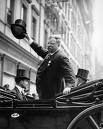




































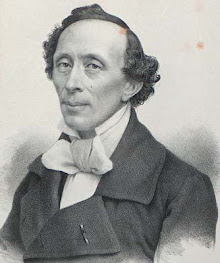


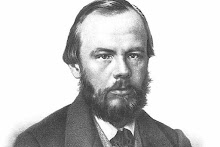



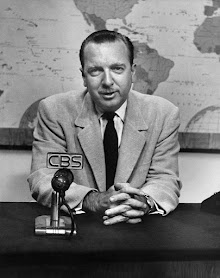









































































































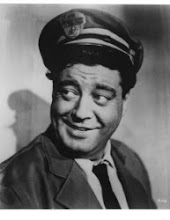





















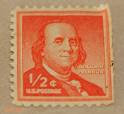



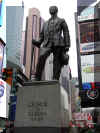





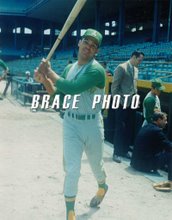


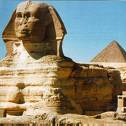

No comments:
Post a Comment